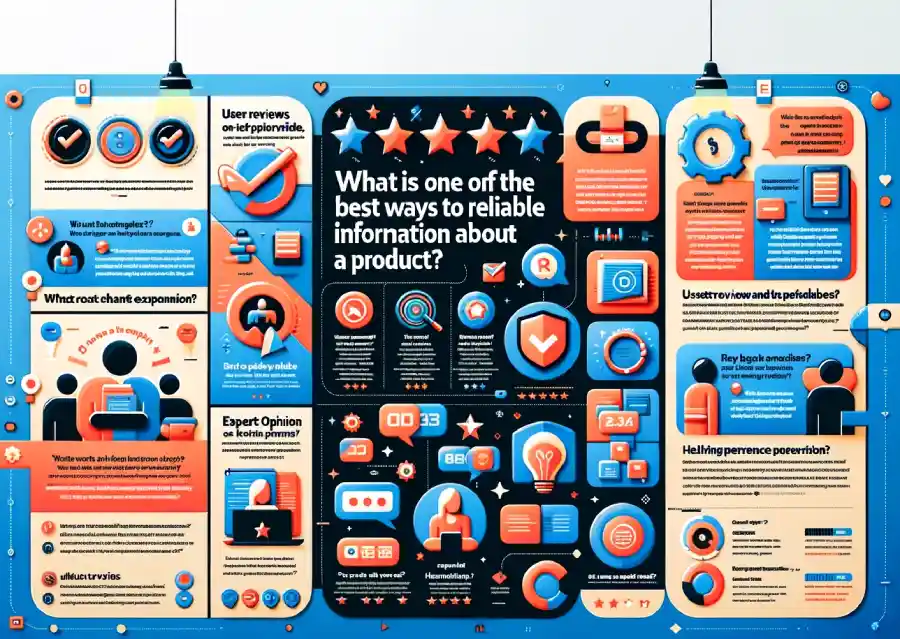
Imagine you’re standing in an aisle filled with dozens of options for a single item – let’s say coffee makers. Some promise the richest flavor, while others boast about being the fastest. Your phone is in hand, ready to assist, but where do you even start? The quest for reliable product information in today’s market can feel overwhelming. You want to make an informed choice, but the flood of reviews, specs, and advertisements leaves you puzzled. Herein lies the heart of our discussion: what is one of the best ways to get reliable information about a product?
Answering the Call for Clarity
The first step is straightforward: turn to both user reviews and expert opinions. While user reviews offer a glimpse into the real-world use of a product, expert opinions provide a technical breakdown and comparative analysis against similar items. But how do you ensure the information you find is reliable?
- User Reviews: Don’t just skim the surface. Look for patterns in feedback. If multiple people mention a specific feature as a pro or con, it’s likely a consistent aspect of the product.
- Expert Opinions: Seek out reviews from established, reputable sources. These experts often have years of experience comparing products and can highlight details you might not have considered.
The Creative Angle: Personal Experiences
Here’s where creativity in your research process comes in. If you have access, nothing beats first-hand experience. Visiting a store to see the product in action or using a friend’s device can offer invaluable insights. Remember that one-time story where a friend’s glowing recommendation turned out to be your worst purchase? Or the opposite, where an underdog product became your favorite? These stories underline the importance of personal experience and how it can dramatically differ from the majority opinion online.
Backing It Up: Credibility in Numbers
When advising on reliability, nothing speaks louder than hard evidence. For instance, a study revealed that products with a rating of 4 to 4.5 stars are often more reliably high-quality than those with perfect ratings, hinting at the value of critical but fair reviews. Moreover, returning to our coffee maker scenario, Consumer Reports found that price isn’t always indicative of quality, debunking a common myth that more expensive means better.
Tying It All Together
To wrap up, finding reliable product information doesn’t have to be a shot in the dark. By blending careful scrutiny of user reviews with the informed perspectives of experts and, when possible, incorporating your own firsthand experiences, you create a balanced, informed view. This approach not only increases your chances of making a satisfying purchase but also empowers you to navigate the commercial waters with confidence and discernment. Remember, in the vast marketplace of today, being well-informed is your best strategy for uncovering the gems that will serve you best.




Pingback: What Are Five Marketing Strategies That Retailers Spend Half Of Their Annual Budget On? - Vlineperol
Pingback: Which marketing activity helps businesses gather information to compete effectively? - Vlineperol
Pingback: 5 Reasons to Use IgAnony for Discreet Instagram Story Viewing - Vlineperol